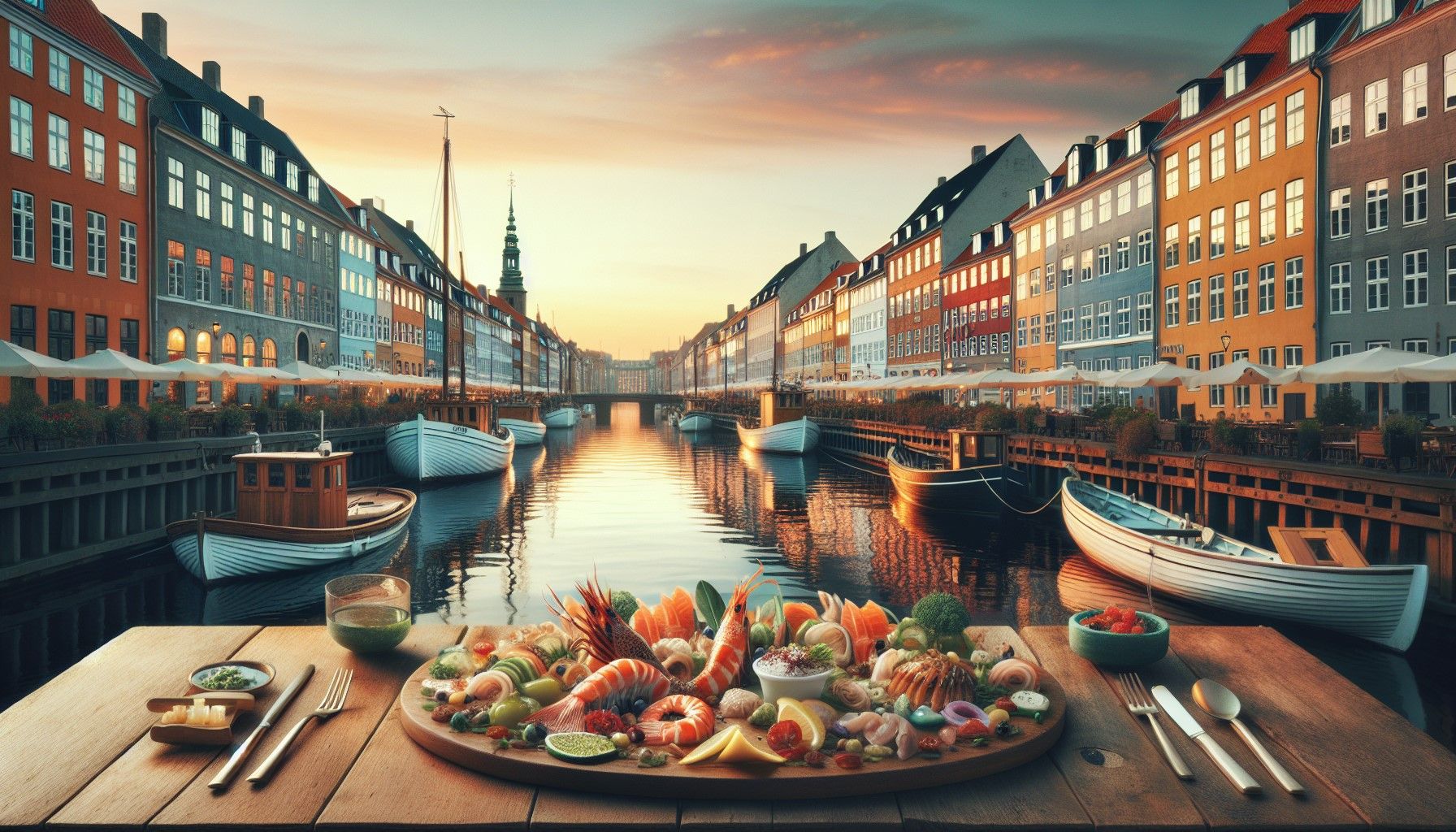In Copenhagen, the capital of Denmark, a vibrant culinary scene thrives, deeply rooted in the city’s rich fishing heritage.
Amidst its colourful facades and meandering canals, the fish restaurant in Copenhagen stand as pivotal experiences for both locals and tourists, offering a deep dive into Danish culinary traditions.
The significance of fishing in Copenhagen’s culture
Fishing is a cornerstone of Danish culture, with a history that has deeply influenced the nation’s culinary path. This tradition, from small fishing communities to modern urban fishing approaches, reflects in Copenhagen’s fish restaurants.
They serve as cultural hubs, presenting dishes that range from succulent herring to coveted plaice, encapsulating the variety of Denmark’s waters and the legacy of generations.
The influence of fishing on Copenhagen’s culinary landscape is evident in the numerous fish markets dotting the city. These markets, like the renowned Torvehallerne, are a testament to the freshness and variety of seafood available.
They serve as a meeting point for locals and tourists alike, fostering a sense of community around the appreciation of quality fish and seafood. The markets also play a crucial role in supporting local fishermen and promoting sustainable fishing practices, further emphasizing the deep-rooted connection between Copenhagen’s culture and its fishing heritage.
Urban fishing in Copenhagen and its culinary impact
In the city’s heart, urban fishing offers a serene retreat and an engaging hobby for many. It fosters a unique connection between the city’s chefs and local fishermen, where the day’s catch enriches the menu of Copenhagen’s restaurants immediately.
This integration forms a cyclic bond of life, community, and gastronomy that is central to the city’s food scene.
The path from catch to cuisine in Copenhagen
The evolution from an amateur fisher to an adept angler is a journey filled with learning, achievement and a growing bond with nature. The link between fishing and cuisine comes full circle when one’s catch becomes a meal at a renowned Copenhagen fish restaurant.
This experience not only brings a sense of fulfilment but also reaffirms the strong ties between the city’s culinary culture and its fishing heritage.
In essence, Copenhagen’s fish restaurants offer a glimpse into the city’s soul, merging history, culture and the joy of dining. This distinct culinary domain invites exploration of Denmark’s sea bounty, dish by dish.
Dining here is more than eating; it is an enduring tradition that has crafted Copenhagen into the dynamic culinary heart it proudly is today.
This content is sponsored by gethooked.dk















